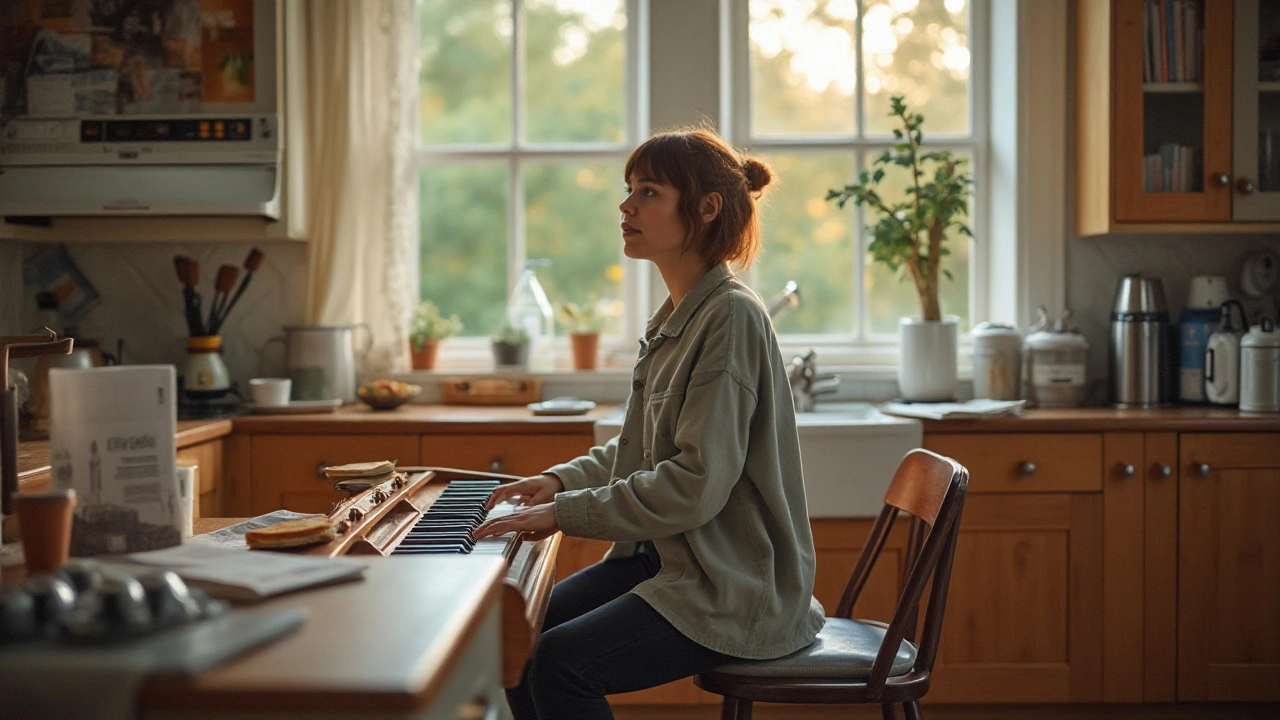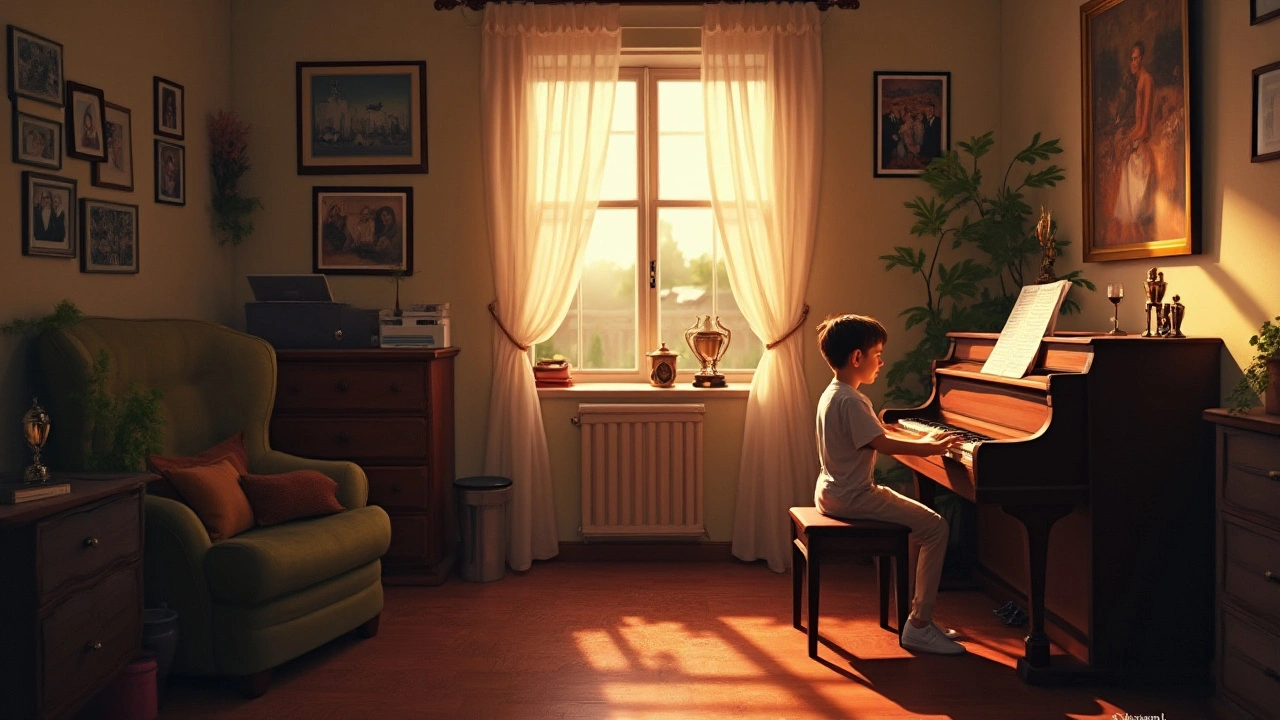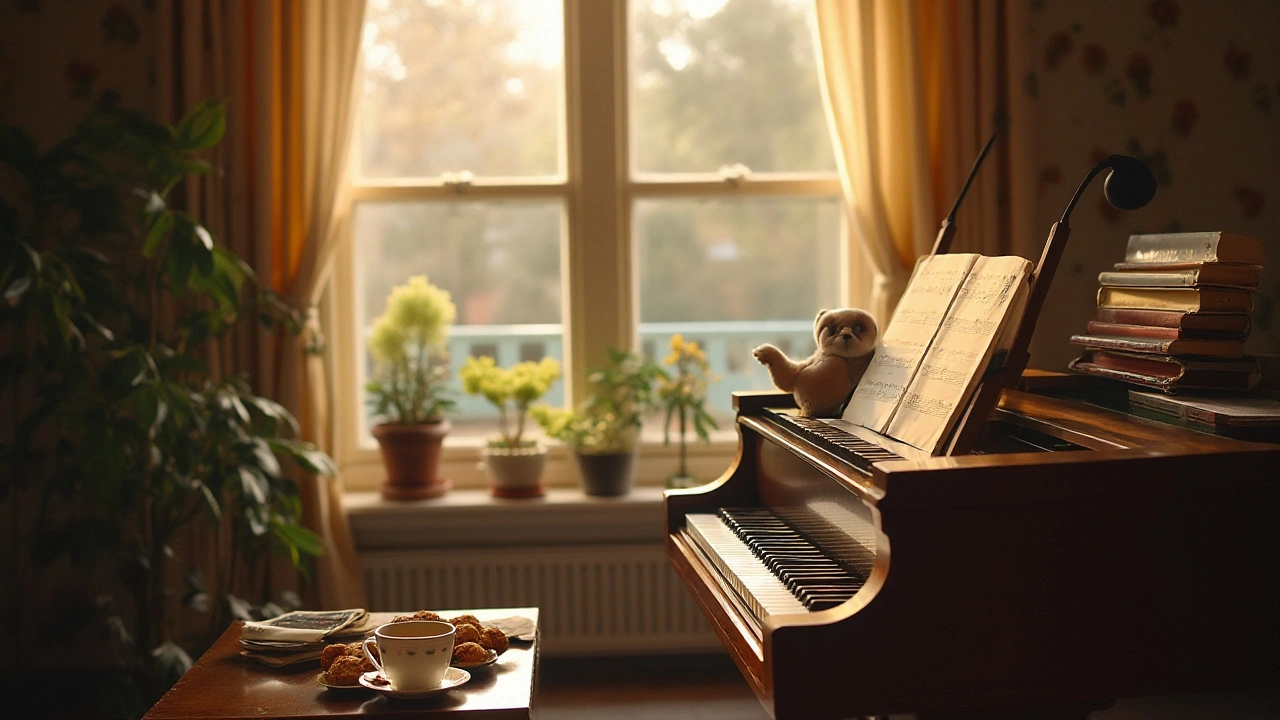Playing the piano is not only a source of joy but also a great exercise for the mind and body. Yet, finding time to practice can be challenging with a busy schedule. Fear not, there are effective ways to embed piano playing into your daily routine, making it a seamless part of your life.
Setting specific, achievable goals can drive your practice sessions and give you a clear path. It’s equally important to create a dedicated space for your piano practice, free from distractions. This encourages consistency and helps establish a routine.
- Set Specific Goals
- Create a Dedicated Space
- Integrate Practice into Existing Routines
- Utilize Technology for Learning
- Stay Motivated and Make it Enjoyable
Set Specific Goals
Setting specific goals can make your piano practice both effective and enjoyable. Start by identifying your primary objective. Are you aiming to learn a particular piece, improve your technique, or simply have fun? Your goal will shape how you allocate your practice time. For example, if learning a new piece is your objective, break it down into manageable sections and practice bit by bit.
One effective method is the SMART criteria: Specific, Measurable, Achievable, Relevant, and Time-bound. Having a well-defined focus can prevent wasted time and facilitate steady progress. For instance, you might set a goal of learning a new song in one month. Break the song into weekly tasks, and daily practice goals. This not only gives you a clear roadmap but also provides small victories along the way.
“Setting goals is the first step in turning the invisible into the visible.” – Tony Robbins
Tracking your progress is another crucial aspect. Keep a practice journal where you jot down what you worked on, what went well, and what needs improvement. Over time, you'll see how far you've come, which can be incredibly motivating. Apps and digital tools also offer ways to record and analyze your practice sessions, which can be particularly useful for keeping track of time spent on various pieces or skills.
Incorporating variety within your goals helps to keep the practice fresh. Avoid focusing on the same scales or exercises all the time. Mix it up with different genres, techniques, or even composing your own pieces. This not only improves different aspects of your playing but also keeps you engaged.
Regularly revisit and adjust your goals to reflect your evolving skills and interests. If a particular goal seems too daunting, break it down further. If something feels too easy, challenge yourself with a more advanced piece. Flexibility ensures that your practice remains aligned with your current level and interests.
Setting specific goals doesn’t just help organize your practice; it provides a sense of purpose and achievement, making your piano journey all the more rewarding. So grab your practice journal, outline your goals, and watch your progress unfold.
Create a Dedicated Space
One of the most effective ways to incorporate piano practice into your daily routine is by creating a dedicated space for it. This means setting aside a specific area in your home where your piano resides, and ensuring that the environment is conducive to both concentration and creativity. Having a designated spot to sit down and practice can significantly improve your consistency and focus.
Consider the location of your piano within your home. An ideal spot would be somewhere quiet, away from the main traffic areas. Being next to a window with natural light can also enhance your mood and make your practice sessions more enjoyable. Additionally, good lighting is essential; a combination of natural and artificial light can prevent eye strain during longer practice periods.
This space should be comfortable and free from distractions. Make sure to have a good, ergonomic chair and that your piano or keyboard is positioned at the correct height to avoid strain on your wrists and back. Surround yourself with items that inspire you—this could include sheet music, a metronome, or even some artwork. Creating an aesthetically pleasing environment can boost your motivation to practice regularly.
Organize your sheet music and resources within easy reach. A small bookshelf or a dedicated music stand can keep everything organized and readily accessible. This cuts down on the time spent searching for materials and allows more time for actual playing. Keeping your practice space tidy can lead to more efficient and enjoyable practice sessions.
For those with limited space, a portable keyboard can be a great alternative. It allows for flexibility and can be stored away easily when not in use. Setting up a small corner with a foldable stand and stool can transform any part of your home into a mini piano studio. The key is to make this environment inviting and conducive to daily practice.
"A dedicated practice space can make the difference between sporadic practice and a consistent, rewarding routine." – Jane Smith, Piano Educator
If possible, soundproofing your practice area can also be beneficial. This is particularly important for those who live in apartments or shared housing. Soundproof curtains, carpets, and even simple door seals can minimize the noise disturbance to others and create a more focused practice environment for yourself.
Don't forget the importance of a good practice routine once your space is set up. Consistency is key, so try to practice at the same time each day. Having your own dedicated space makes it easier to stick to this routine. You'll start to associate this specific area with your practice time, making it easier to build a lasting habit.

Integrate Practice into Existing Routines
Finding time to practice piano can sometimes feel like a daunting task, but it doesn't have to be. The trick to making it a seamless part of your day is to build it into your existing routines. For instance, you might take your first few steps with a morning practice session. Pair this with your usual coffee or tea ritual. Even 10-15 minutes in the morning can provide a refreshing start to your day. This way, you combine an old habit with a new one.
Another opportunity arises when activities are already scheduled. Have kids who practice sports or music? Use that time to work on your own piano skills. Waiting time at music or dance lessons isn’t wasted when you bring your sheet music and some headphones along.
Similarly, you can slot in some evening practice while dinner is cooking or just before bed as a way to unwind. It’s also a great stress reliever after a long day. You can think of these practice times as mini-breaks, where you step away from daily responsibilities and just focus on playing. Giving yourself permission to enjoy these small segments can do wonders for your piano skills.
Moreover, fuse practice with other leisurely activities. Watching TV or listening to podcasts can coexist with piano practice by splitting focus or multitasking. Mute commercials and play some brief scales. Another idea is using background music theory while catching up on your favorite shows. This way, passive absorption of theory supports active learning during your practice.
Dr. Lisa Chu, a music educator, says, "Incorporating small, consistent chunks of practice throughout your day is more effective in building skill than long, sporadic sessions."In fact, research supports this—spaced practice, where you play for shorter periods multiple times a day, results in better retention and skill development.
Those with flexible work-from-home schedules can use break times effectively. A quick 5-minute practice between tasks does wonders in keeping your mind sharp. This not only breaks up the monotony of work but also introduces a creative element into an otherwise routine day.
Utilize Technology for Learning
In today's digital age, technology has revolutionized the way we learn and practice piano. Whether you're a beginner or an advanced player, there are numerous resources available at your fingertips to enhance your piano practice and keep you motivated. One of the most popular tools is piano learning apps. These apps offer interactive lessons, instant feedback, and track your progress in a fun and engaging way.
Several apps like Simply Piano, Flowkey, and Yousician are great for both adults and children. They offer structured lessons that guide you from the basics to more advanced techniques. These apps use your device’s microphone to listen to your playing and provide real-time feedback. This can be incredibly beneficial as it allows you to correct mistakes on the spot and improve your accuracy.
Online tutorials and video lessons from platforms like YouTube and Udemy have made learning piano more accessible than ever. Renowned instructors offer comprehensive courses that cover everything from reading sheet music to mastering complex compositions. One fantastic benefit is the flexibility to learn at your own pace and revisit lessons as needed.
Aswell as afore mentioned “Technology has made it easier than ever to learn an instrument, providing resources that many of us never could have imagined,” says pianist and educator Lang Lang.
Another innovative approach is using digital keyboards and MIDI controllers connected to your computer. These devices can be paired with software like GarageBand or Ableton Live, allowing you to experiment with different sounds and composition techniques. It's a creative way to enhance your playing and explore beyond traditional piano music.
Utilize Smart Devices
Smart devices and wearables can also play a significant role in your learning journey. Metronome apps help you keep time, while tuners ensure your piano is always perfectly pitched. Wearable tech like smartwatches can track your practice time, set reminders, and even monitor your posture to help prevent strain or injury.
Integrate practice into existing routines by setting up reminders on your phone or smartwatch. Just a gentle buzz on your wrist can prompt you to take a break and practice for a few minutes, ensuring that piano practice becomes a regular part of your day.
Don’t overlook the benefits of online communities and forums. Websites like Piano World and Reddit's r/piano offer a wealth of information and support. You can find tips, share your progress, and even participate in challenges that keep your practice engaging and goal-oriented.
Virtual Reality and AI
Emerging technologies like virtual reality (VR) and artificial intelligence (AI) are also starting to make an impact. VR apps offer immersive piano lessons that make you feel like you’re sitting in front of a grand piano in a concert hall. AI-powered platforms provide personalized learning experiences, adjusting the difficulty level based on your performance and offering targeted exercises to improve your weaknesses.
Incorporating technology into your daily piano routine not only makes learning more accessible but also adds an element of fun and engagement. With so many resources available, there's no excuse not to keep improving and enjoying your piano journey.

Stay Motivated and Make it Enjoyable
Keeping your enthusiasm high is essential for maintaining a consistent piano practice. The journey to musical proficiency is an evolving one, filled with both triumphs and challenges. To ensure you don't lose steam, consider infusing fun into your practice sessions. Choose pieces you genuinely enjoy or that have a personal connection. Alternating between new challenges and familiar favorites can keep your interest piqued.
One useful trick is to track your progress. Use a dedicated journal or a simple app to log your practice time and note improvements, no matter how small. This log can serve as a tangible reminder of how far you've come and a visual motivation to keep playing. Sometimes seeing your journey mapped out can reignite your spark.
Joining a community of fellow piano enthusiasts can also be incredibly beneficial. Whether it’s an online forum, local group, or attending piano recitals, interacting with others who share your passion can offer encouragement and new perspectives.
"Surround yourself with people who are only going to lift you higher." – Oprah Winfrey.
Another method to make the piano practice fun is to explore different styles and genres of music. If you usually play classical pieces, try jazz or pop for a change. This can make your sessions more dynamic and less monotonous. Moreover, incorporating technology can add an element of excitement. Apps that offer interactive tutorials or virtual piano lessons can turn your practice into an engaging experience.
One little-known fact is that playing piano regularly can have health benefits, such as reducing stress and improving cognitive functions. Knowing this can be a strong motivator to persist. Table below illustrates some of these benefits:
| Benefit | Description |
|---|---|
| Stress Relief | Playing piano can lower blood pressure and cortisol levels. |
| Enhanced Memory | Regular practice improves hand-eye coordination and cognitive skills. |
Don't forget to reward yourself for reaching milestones. Whether it's a small treat, a break, or even buying sheet music for a new song, rewards can add a positive reinforcement loop to your \

